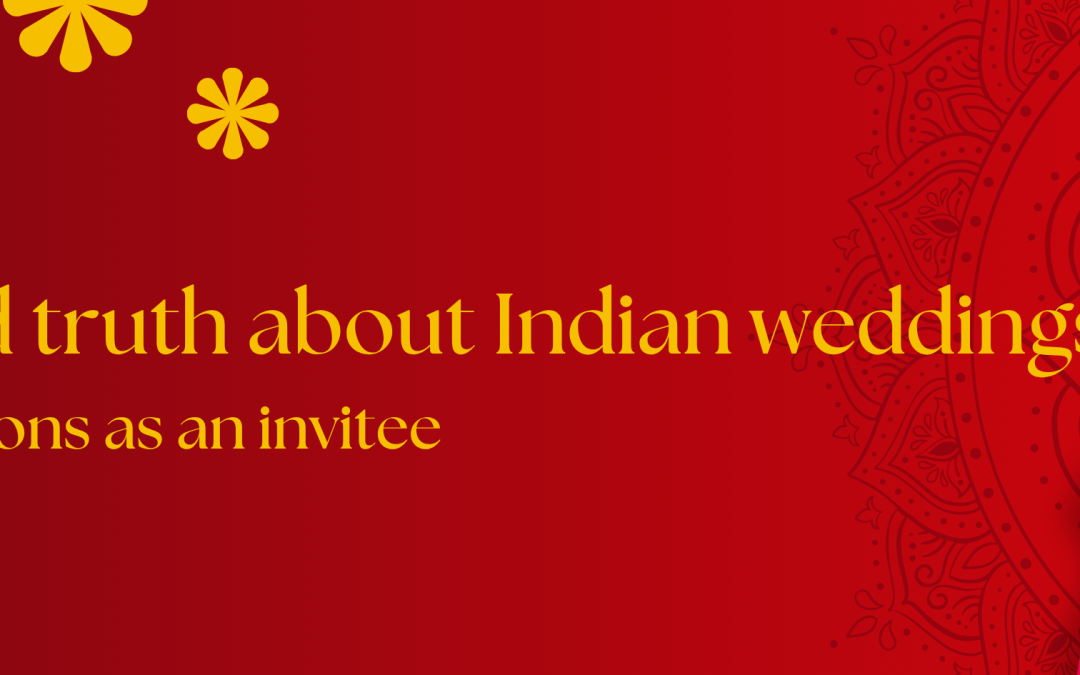Indian weddings are celebrated as vibrant, grand affairs—an outward testament to love, family unity, and cultural heritage. Yet beneath the layers of glittering décor and jubilant festivities lie recurring patterns that often undermine the very essence of a couple’s relationship. From rushing into marriage at a young age, to intrusive relatives prescribing life paths, these dynamics can erode romance and agency, leaving newlyweds unprepared for the realities of married life.
Here are some critical observations, which might be true for many, if not for most.
1. Marrying Too Early: Dreams Deferred
Across many communities in India, social expectations still prioritize marriage as the ultimate milestone. Young couples—sometimes still in college or at the cusp of their careers—are ushered into wedlock before they’ve fully discovered their own identities. When the focus shifts from personal growth to fulfilling societal checkboxes, several issues emerge:
Emotional immaturity: Without sufficient life experience, partners may struggle to communicate effectively, manage conflicts, or support each other through challenges.
Career compromises: Ambitious individuals may feel pressured to abandon or delay professional aspirations to conform to traditional roles.
Unrealistic expectations: Entering marriage with an underdeveloped sense of self can lead to mismatched priorities once the honeymoon phase ends.
2. The Invasion of “Irrelevant” Relatives
A hallmark of Indian weddings is the sprawling guest list—often including distant cousins twice removed or family friends once acquainted. While driven by respect and the desire to maintain social bonds, this inclusivity can backfire:
Unsolicited advice: From the first look to the last dance, relatives seize every opportunity to preach about finances, domestic responsibilities, and childbearing timelines.
Comparison culture: Comments about other couples’ careers or offspring can engender feelings of inadequacy or self-doubt.
Decision overload: Continuous questioning (“When will you start a family?”; “Why not move closer to mom?”) distracts couples from making choices that truly reflect their values.
3. Romance Fading before it blooms
Once the excitement of wedding planning gives way to day‑to‑day reality, many couples find themselves overwhelmed by new responsibilities:
Domestic duties: Negotiating household chores and living arrangements becomes a source of friction, particularly if neither partner has navigated such routines independently before.
Financial strain: Visiting relatives, hosting lunches and dinners for family and friends, managing societal expectations etc. doesn’t give enough time for the coupe to know each other. Even secx becomes an instrument of procreation.
Social expectations: The relentless urge to “keep up” with cousins & peers—creating wealth through real estate, showing off jewellery and dowry, many times showing off the spouse, planning children coz others want you to have them—can transform marriage from a partnership into a race against an invisible finish line.
4. The Burden of Other People’s Opinions
In traditional Indian settings, marital decisions rarely remain private. Extended families, neighbours, and social circles often feel entitled to pass judgment:
Life milestones as societal markers: Success is measured not by personal fulfillment but by ticking off milestones in the “approved” sequence—marriage, home, children.
Fear of “shame”: Deviating from the norm invites unsolicited commentary or even ostracism, compelling couples to make choices they don’t fully endorse.
Loss of agency: When every step—career move, vacation plan, pregnancy decision—is scrutinized, couples can feel like their lives are on display rather than self-directed.
Indian weddings, with their rich traditions and communal joy, hold immense cultural value. Yet, without mindful navigation, they can become a crucible of premature commitments, intrusive commentary, and the gradual evaporation of romance. By encouraging youngsters to choose for themselves – on when and whom do they plan to spend the rest of their life with, establishing firm boundaries with well‑meaning relatives, actively nurturing the couple’s bond, and filtering external opinions, India’s wedding celebrations can evolve into events that truly honour the couple’s journey—both in festivity and in life beyond the big day.

